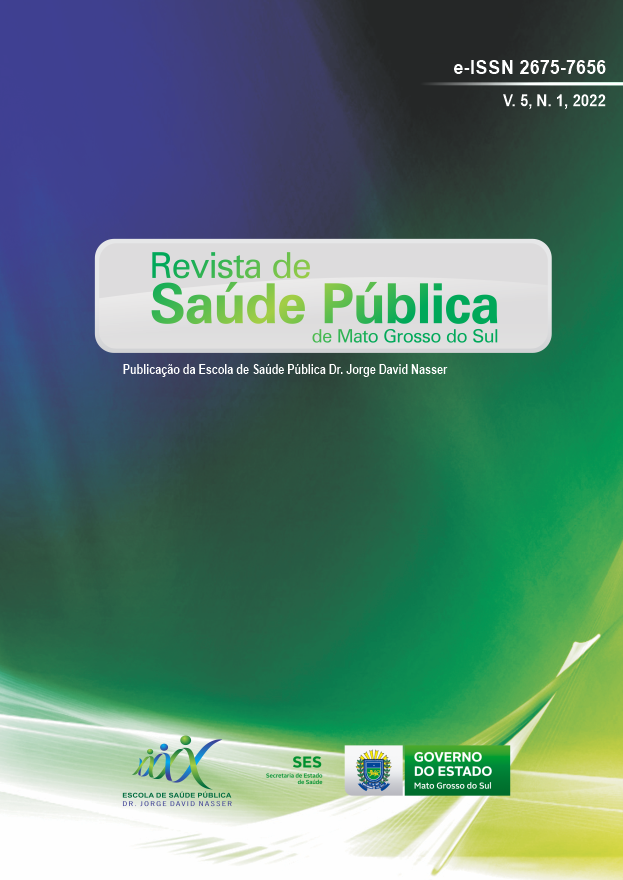The look of the community health agent for their professional practice: planned work, real work and the influence of training processes
Keywords:
Primary Health Care, Community Health Agent, Professional Education in Health, Professional Qualification, Work in HealthAbstract
Introduction: Since the establishment of the Unified Health System (SUS), advances have been observed in the public health scenario. The registration of health as a right is a major milestone. The Brazilian care reorganization, which starts from a centered, hospital-centric and excluding medical care, towards universal, free access and with a preventive approach, also represents a great advance. The incorporation of the Family Health Strategy (ESF) into the SUS contributed to this reformulation, considering its principles and guidelines, operationalized through a multidisciplinary team. The Community Health Agents (ACS) are members of this team, they strengthen the territorial approach and contribute to the emphasis on preventive actions in the ESF, mainly considering their educational and health promoting role. Objective: To discuss the relationship between the qualification and professional training of ACS and its reflexes in their daily practice and, more specifically, to identify which attributions are most relevant in their daily work. Methods: Data collected through interviews with 20 ACS were analyzed, ensuring the representation of the five Brazilian regions. The present study is part of a broader project, with a qualitative basis, entitled Work Process of Health Technicians from the perspective of knowledge, practices and competences, which aimed to analyze the professional training of ESF technical workers, considering their principles and guidelines and characteristics of the work process. The study included, as participants: nursing assistants/technicians, oral health technicians (TSB), ACS and agents to combat endemic diseases (ACE), who are part of the ESF teams. Data collection was carried out in 20 municipalities in 13 Brazilian states. Presenting an ESF coverage index greater than or equal to 60% and teams composed of nursing, ACS, TSB and ACE, represent the criteria to compose the sample. The research complied with all ethical precepts, approved by the Research Ethics Committee under opinion nº 1.064.681CAAE: 43320215.1.0000.5241. Considering the objective outlined for this study, only the statements of ACS were analyzed, randomly selecting a representative from each municipality, composing the sample of 20 participants. Results: Based on the content analysis of the interviews, it was possible to compose two categories of analysis: “the accumulated knowledge of the ACS†and the “valuation of the attributions from the perspective of the professional himselfâ€. Based on the findings included in the first category, it was possible to discuss the relationship between the qualification and training of ACS and how such processes reflect in their practical daily life, so that the ACS went through processes directly focused on professional practice, with emphasis on to the Project for Professionalization of Workers in the Nursing Area (PROFAE) and the Technical Course for Community Health Agents (CTACS); as well as short and punctual courses on topics specifically linked to data collection activities or topics related to lines of care or the arbovirus epidemic. Even with the relevant and significant theoretical investment, having its importance recognized by the ACS, the empirical knowledge, acquired in the routine and in the exchanges with other co-workers, where the main reference is represented by the figure of the nurse, still assumes centrality to guide their practice and compose the load of their professional knowledge. Based on the findings included in the second category, it was possible to identify which assignments are most relevant in their daily work, divided between internal/bureaucratic work and work in the territory developed by the ACS, as well as the greater value they attribute to activities developed in the territory. It is also important to emphasize the dichotomy between the real work - present in the participants' speech, contemplating the possible attributions to be practiced - and the prescribed work, that is, the set of attributions designed for the position and which is often not possible. practice them or that are even unknown to the ACS. Conclusion: The results found show that the ACS attributed value to the roots of action, to the educational work, in the territory and that the real work is broader than the expected work. It is indicated that the incorporation of numerous activities is due to the shortage of professionals and the vague way in which health policies treat these workers, especially the main document that guides primary care, the National Primary Care Policy (PNAB).
Downloads
Published
How to Cite
Issue
Section
License
Copyright (c) 2023 Monique Nunes Fiuza Dias

This work is licensed under a Creative Commons Attribution 4.0 International License.
O (s) Autor (es) declara (m) que ao submeter um manuscrito na Revista de Saúde Pública de Mato Grosso do Sul, concorda (m) com os termos da Declaração de Direito Autoral e autoriza (m) a Revista de Saúde Pública de Mato Grosso do Sul a publicar o manuscrito sob a licença Creative Commons Atribuição 4.0 Internacional e identificar-se como veículo de sua publicação original.




